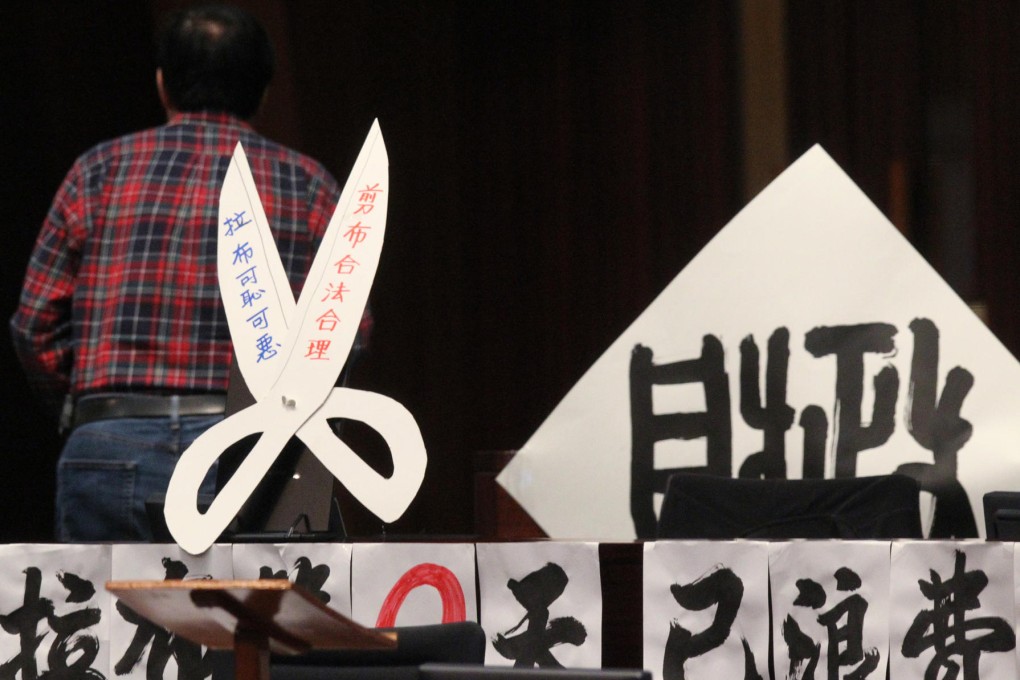Filibuster brings opportunity to think outside box
Out politicians must find new ways to deal with balancing interests and meeting demands

The Chinese equivalent of "filibuster" is , meaning "stretching the cloth". This translation gives an image of fluff and flannel, not exactly the stuff of gravitas.
Yet, nothing could be more serious than filibustering, which acts like a safety valve, allowing minority voices to be heard. Filibustering, like a political pulse, is often an outward sign of an inner malaise.
This is particularly so in a semi-democratic Hong Kong, where those with executive power do not have a mandate from the people; and those with the mandate do not have the power - hence, the deep-seated conflict and dilemma.
Four legislators from People Power and the League of Social Democrats decided to use the debate on the Appropriation Bill 2013 to filibuster if that was what it would take to get what they wanted.
What they wanted was essentially the government's commitment - or at least a timetable or a road map - to a universal pension scheme. And as the treasury was flush with cash, they also asked also for a handout of HK$10,000 per person. A tall order, in any language and in any place.
They prepared hundreds of motions. Always eloquent, often humorous and sometimes quizzical, they radiated a collective conviction. Relay fashion, they gave mouth-to-mouth resuscitation to each head and sub-head of expenditure, long taken as read or dead. They stood each item on its head.
While this was going on, the financial secretary refused, with conventional wisdom, to let his budget be used as a bargaining chip in any negotiation. He stood firm and did not budge an inch from his entrenched position.
